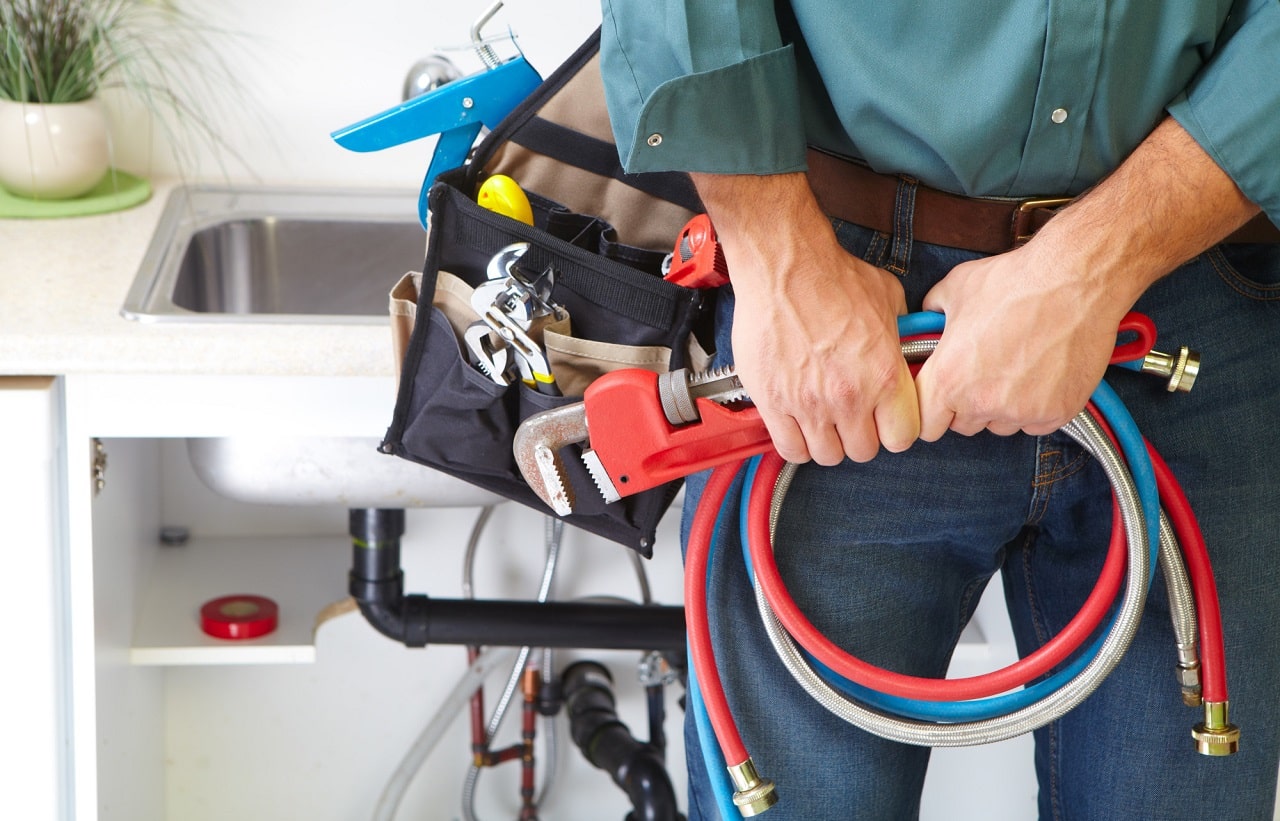Plumbing issues in the bathroom and kitchen are common in London homes, but not every problem requires a professional plumber. With the right tools, knowledge, and a bit of confidence, you can tackle many minor plumbing tasks yourself.
This article provides practical DIY plumbing hacks to help you maintain and repair your bathroom and kitchen plumbing systems efficiently and cost-effectively.
Essential Tools for DIY Plumbing
Before diving into any plumbing project, ensure you have the right tools on hand. Some essentials include:
- Adjustable wrench
- Plunger
- Pipe wrench
- Plumber’s tape (Teflon tape)
- Drain snake or auger
- Screwdrivers (flathead and Phillips)
- Bucket and towels (for spills)
- Rubber gloves
Having these tools ready will save you time and make your DIY plumbing tasks much easier.
Bathroom Plumbing Hacks
Unclogging a Blocked Drain
Blocked drains are a common issue in bathrooms. Instead of calling a plumber, try using a plunger to create suction and dislodge the blockage. If the plunger doesn’t work, pour a mixture of baking soda and vinegar down the drain, followed by hot water after 15 minutes. For stubborn blockages, use a drain snake to remove hair and debris.
Fixing a Leaky Faucet
A dripping faucet can waste water and increase your bills. To fix it, turn off the water supply to the faucet, disassemble the handle, and replace the worn-out washer or O-ring. Reassemble the faucet and turn the water supply back on. This simple fix can save you money and prevent further damage.
Cleaning Showerheads
Mineral deposits can clog showerheads, reducing water flow. To clean it, remove the showerhead and soak it in a solution of white vinegar and water for a few hours. Scrub away any remaining deposits with an old toothbrush, reattach the showerhead, and test the water flow.
Preventing Toilet Clogs
To avoid toilet clogs, avoid flushing non-flushable items like wipes or sanitary products. Use a toilet auger to clear minor clogs before they become severe. Installing a toilet overflow alarm can also alert you to potential issues before they escalate.
Kitchen Plumbing Hacks
Clearing a Blocked Sink
Kitchen sinks often get clogged with food debris and grease. To clear a blockage, use a plunger to create pressure and dislodge the clog. Pour a mixture of baking soda and vinegar down the drain, followed by hot water. For deeper clogs, use a drain snake to remove debris.
Fixing a Leaky Pipe Under the Sink
Leaky pipes are a common kitchen issue. To fix them, turn off the water supply and place a bucket under the leak. Tighten the connections with a wrench or replace the damaged section of the pipe. Use plumber’s tape to seal threaded connections and prevent future leaks.
Maintaining the Garbage Disposal
To keep your garbage disposal running smoothly, regularly clean it by grinding ice cubes and citrus peels. Avoid putting fibrous or starchy foods like potato peels down the disposal. Use a hex key to manually turn the disposal and dislodge any stuck debris.
Preventing Frozen Pipes in Winter
London winters can cause pipes to freeze and burst. To prevent this, insulate exposed pipes with foam tubing. Keep your heating on at a low temperature during cold spells, and open cabinet doors under sinks to allow warm air to circulate around the pipes.
General Plumbing Tips for London Homes
Know Your Water Shut-Off Valve
Locate the main water shut-off valve in your home. In case of a major leak, turning off the water supply quickly can prevent extensive damage.
Use Plumber’s Tape
Apply plumber’s tape (Teflon tape) to threaded connections to create a watertight seal and prevent leaks.
Regular Maintenance
Inspect your plumbing system regularly for signs of wear, such as rust, cracks, or leaks. Addressing small issues early can prevent costly repairs later.
Avoid Chemical Drain Cleaners
Harsh chemicals can damage pipes over time. Opt for natural solutions like baking soda and vinegar or mechanical methods like plungers and drain snakes.
Label Pipes
If you have multiple pipes, label them to easily identify the hot and cold water lines. This can save time during repairs or emergencies.
When to Call a Professional
While DIY plumbing hacks can solve many issues, some problems require professional plumbing services. Call a plumber if the issue involves the main water line or sewer system, you notice a sudden drop in water pressure throughout the house, there is extensive water damage or flooding, or you’re unsure about the cause of the problem or how to fix it.
Conclusion
With these DIY plumbing hacks, you can handle many common bathroom and kitchen plumbing issues in your London home. Regular maintenance, the right tools, and a bit of know-how can save you time and money. However, always know your limits and call a professional for complex or high-risk problems.
By taking a proactive approach to plumbing maintenance, you can keep your home’s plumbing system in top condition and avoid costly emergencies.

Myself Aditya and I am from Mumbai, India. As an intern, I joined the local news agency in Mumbai named “The Mumbai News”. Now I am working with various News Agencies and I provide them reports from Mumbai and other parts of India.















